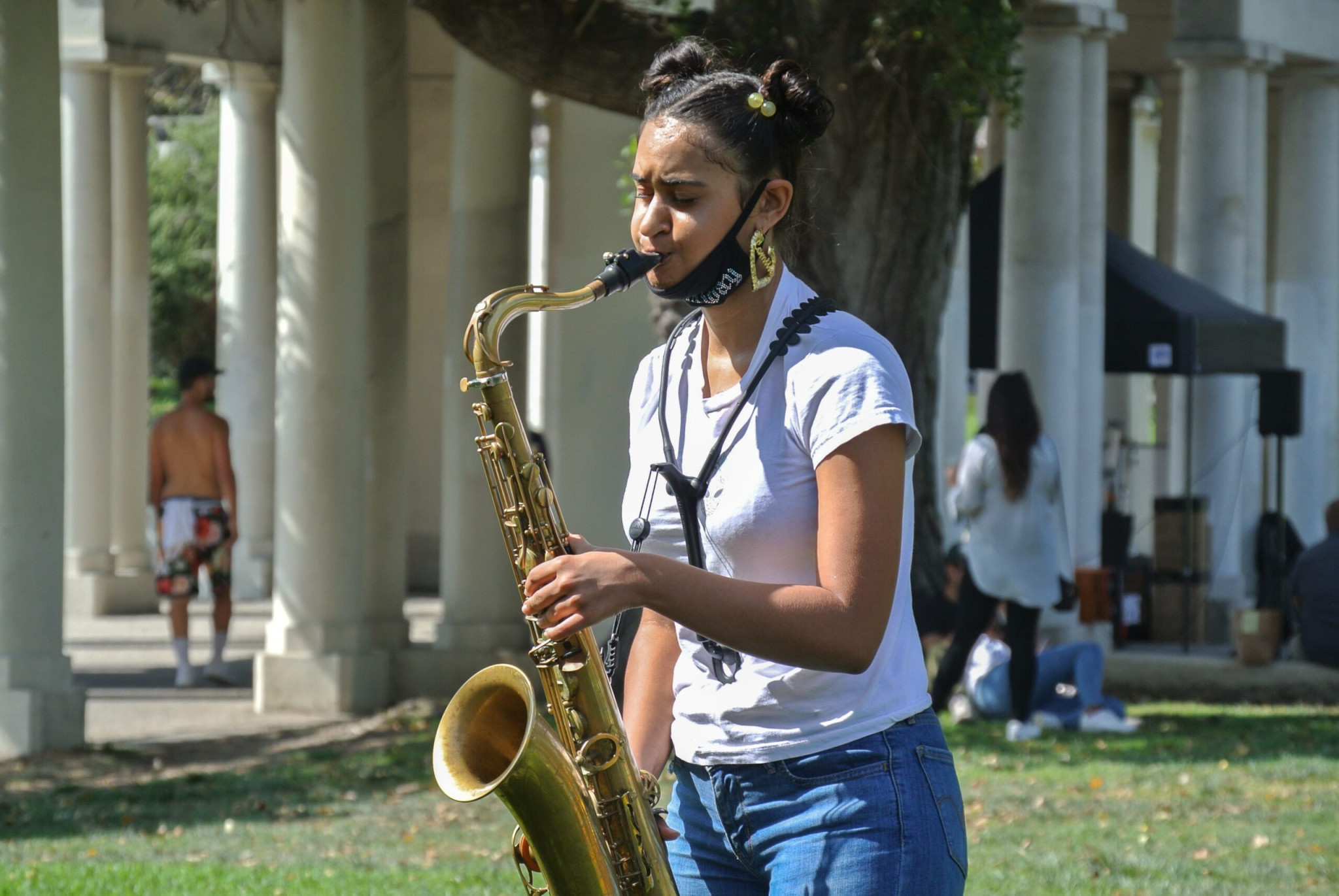“That is normally more how I write … just from a single moment, gaining inspiration, and … improvising [on] it,” said Camille Collins — student, musician, and activist.
A senior at Berkeley High School (BHS), Collins plays tenor saxophone in the Jazz Ensemble. But where did her journey begin?
Collins grew up in Oakland, where, like Berkeley, public school students have the option to begin playing an instrument in fourth grade. Regarding this matter, she recalled having an unexpected interest in playing saxophone and convincing her reluctant parents to buy her one. Collins, who didn’t take lessons at the time, said, “I ended up teaching myself how to play. I practiced for … three hours a day, just looking at YouTube videos or whatever.” While this resulted in her having a great ear — learning John Coltrane solos without any formal training is not for the faint of heart — she later found difficulty in not being able to read music. Going forward, Collins quickly advanced her skills and was scouted by Oakland School of the Arts (OSA) in fifth grade. OSA is where she spent her next four years of school and where she further developed her abilities.
After her freshman year, she moved to BHS and auditioned for the jazz program, making it into one of the top spots in the Jazz Ensemble. She described her experience: “I was blown away by how inclusive the environment was . . . I think [the jazz program director] Ms. Cline really tries to create a culture of being cool with everyone and being accepting of everyone … So I really quickly felt like I found my people in that program.”
As Collins learned and worked as a jazz musician, she established her improvisational skills. In reference to these capabilities, she said, “I'm improvising all the time. I am a composer, even if I wasn't going to write any of it down on paper, if you take a solo that's composing.” In speaking with Collins, I learned that this is very much true, particularly for her personal method and style. She described her composing not as writing down music, but just playing in a very natural, free manner. Perhaps she is able to do so because she always has music running through her head. “When I have one of those ideas, I go on my phone and put it into Voice Memos,” she said.
Collins described how the ideas she has, the music in her head, are filtered through the style of music she is listening to at the time, whether it be ’70s soul, Cuban music, or something else entirely. Of course, composition is not a walk in the park for Collins, or most anyone for that matter. While she finds it fairly simple to create a melody, she has difficulty creating harmonies, something she in part attributes to her lack of any formal piano training.
Recently, as a byproduct of the pandemic, Collins created a program called “The Young Musicians Collective: Students Helping Students.” At its website, one can find video lessons pertaining to various instruments and topics recorded by expert jazz students. In addition, it is also possible to schedule a free private lesson with one of these students through the website. It is truly an amazing program for which I can give no better explanation than its creator: “I feel like music classes are kind of rough right now, … especially if you're trying to learn Black American music, jazz … that's not supposed to be learned through screen or computer. [It's] not even really supposed to be taught. It's just so unnatural to do stuff like that in isolation. So, I'm just trying to stay true to the tradition and connect these younger students with mentors, or with … free videos.”
Through conversing with Collins, I have discovered an amazing musician with an interesting compositional method who has worked to share her knowledge with those who don’t have access to a musical education.





